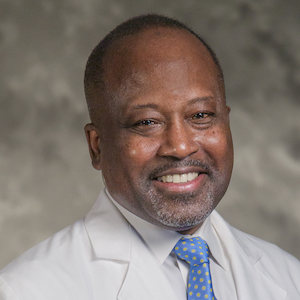From the Chair – Connections Winter 2025

As we come to the end of Winter 2025, we’re excited to share our third quarter Connections issue, in which we highlight some of the innovative programs our department is involved in. Through efforts like these, Duke Head and Neck Surgery & Communication Sciences strives to advance and lead our specialty and disciplines. (If you agree, please consider referring patients to us.)
Sleep apnea and snoring are becoming more prevalent, and sleep surgeries offer patients viable solutions and better rest. We’re meeting the growing demand by expanding our services, led by Emily Commesso, MD, the first sleep-surgery fellowship-trained specialist in North Carolina.
Sinus cancers may be rare, but they have a big impact on patients. Ralph Abi-Hachem, MD, is one of the few who specializes in treating sinonasal cancers, using minimally invasive and multidisciplinary approaches to achieve excellent outcomes. He’s also working with colleagues throughout Duke, including Bradley Goldstein, PhD, on research to improve understanding and treatment of these cancers.
Dr. Abi Hachem has also teamed up with Duke pediatric neurosurgeon Amanda Jenson, MD, to create the Pediatric Skull Base Program. Building on skills and processes developed for our Adult Skull Base Program, the new pediatric program aims to help even more children and adolescents with skull base tumors.
The health implications of dysphasia are well recognized, yet very limited research has evaluated its effect on surgical outcomes. Harrison N. Jones, PhD, BRS-S, MA, and Seth Cohen, MD, MPH, conducted a retrospective, observational study. The study found patients with preoperative dysphagia had worse outcomes after surgery — and underscored the need for integrating dysphagia screening and intervention into routine preoperative protocols.
If you haven’t yet, I’d like to encourage you to read our publication, “Celebrating 5 Years of Excellence.” It reflects on our journey as a department and shows the remarkable progress we’ve made. I’m so proud of the work our faculty, trainees and staff have done — and continue to do!
Sincerely,
Howard W. Francis, MD, MBA, FACS
Richard Hall Chaney, Sr. Distinguished Professor of Otolaryngology
Chair, Department of Head and Neck Surgery & Communication Sciences